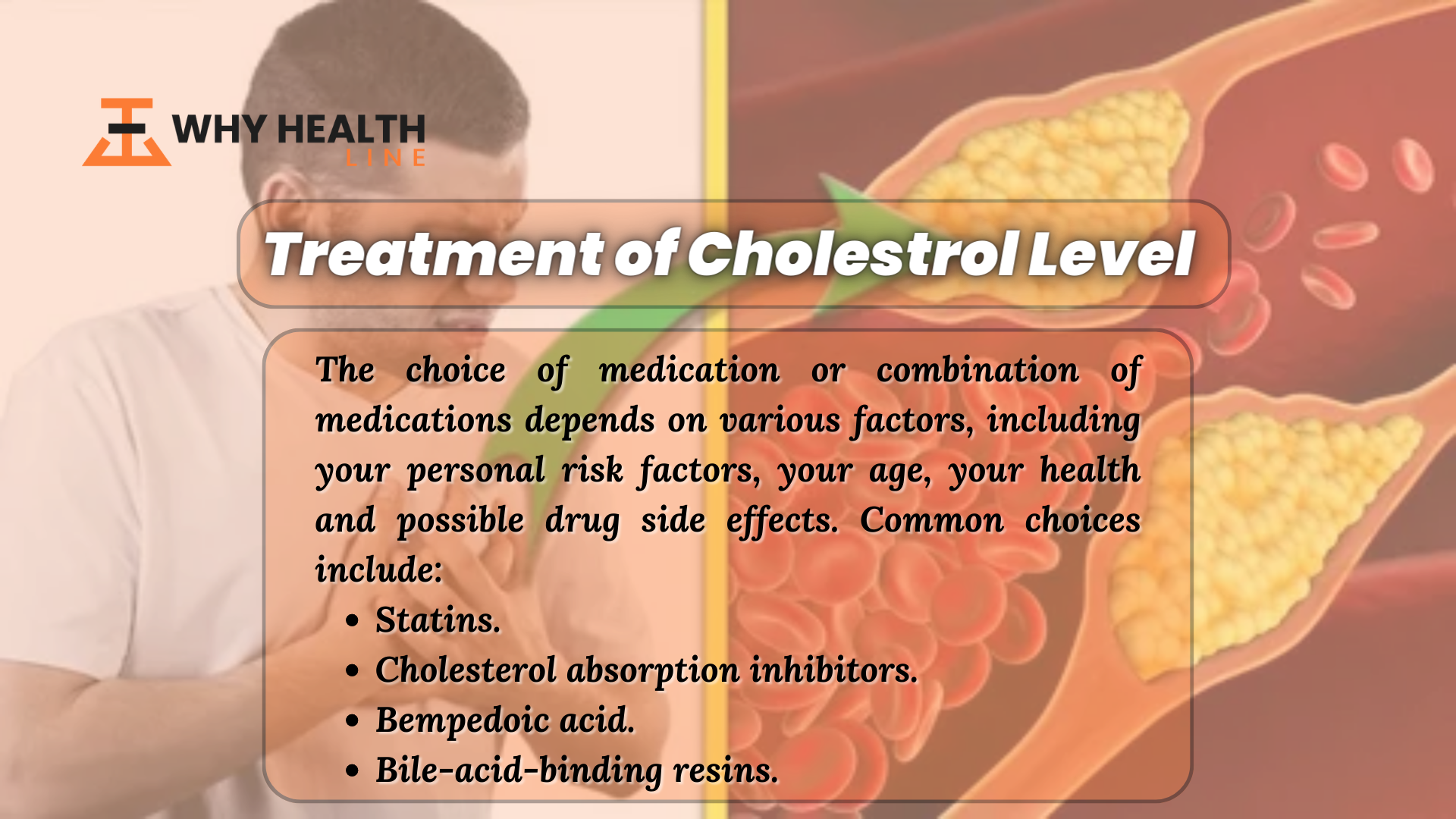Did you know that high cholesterol is not just a health concern on its own, but it’s also closely associated with many other medical problems? It can lead to serious issues like coronary artery disease and even high blood pressure.
In fact, some diseases that trigger inflammation in your body, such as lupus, can also cause high cholesterol.
Therefore, it is important to keep an eye on your cholesterol levels, as it can impact your overall health in more ways than one. Let’s get started to discover all the details.
What is High Cholesterol?
When a person has high cholesterol, fatty deposits can build up in his blood vessels, which can make it harder for enough blood to flow through his arteries.
Elevated levels of cholesterol can also raise the risk of developing heart disease, stroke, and other health issues. However, there is no need to worry as there are many effective ways to maintain a healthy cholesterol level.
Eating a balanced diet with limited intake of fatty foods, exercising regularly, maintaining a healthy weight, and avoiding smoking and excessive alcohol consumption are all great steps you can take to protect your heart health.
Causes of High Cholesterol
There are several factors that can contribute to an imbalance in your cholesterol levels, leading to an unhealthy ratio of LDL (bad) to HDL (good) cholesterol:
- Poor diet
- Obesity
- Lack of exercise
- Smoking
- Alcohol
- Age
Symptoms of High Cholesterol
Symptoms of high cholesterol usually do not become apparent until it leads to other health issues. They typically include problems like peripheral artery disease, high blood pressure, and stroke. However, it is important to keep in mind that high cholesterol is frequently seen in individuals with diabetes.
However, immediate medical attention is necessary if an individual experiences symptoms such as left-sided chest pain, pressure, or fullness; dizziness; unsteady gait; slurred speech; or pain in the lower legs, as these conditions may be associated with high cholesterol.
What Medical Problems Affect My Cholesterol Levels?
People with high blood pressure or diabetes have a relatively higher chance of having high cholesterol. Additionally, medical conditions like kidney and liver diseases may also cause elevated cholesterol levels.
Therefore, it is crucial to get regular cholesterol level checks in order to detect these conditions early and manage them promptly. Otherwise, such issues, when left unaddressed, ultimately lead to severe health complications.
Complications of High Cholesterol
Research has shown that having high levels of cholesterol in the blood can significantly raise the risk of developing various health conditions, including:
- Narrowing of the arteries
- Heart attack
- Stroke
- Transient ischaemic attack (TIA)
- Peripheral arterial disease (PAD)
These complications occur when cholesterol accumulates in the artery walls and limits blood flow to different parts of your body, including your heart and brain. Additionally, it raises the likelihood of a blood clot forming in your body.
Furthermore, an increase in your blood cholesterol level can increase your risk of developing coronary heart disease, which may cause chest or arm pain during stress or physical exertion.
How to Control Cholesterol Levels?
Prevention
Achieving healthy cholesterol levels can be accomplished by maintaining a balanced diet and engaging in regular physical activity. Increasing your body’s HDL, also known as “good” cholesterol, is possible by incorporating exercise into your daily routine.
Additionally, it is important to avoid smoking and limit alcohol consumption, as smoking can decrease HDL levels, and excessive drinking can elevate total cholesterol levels.
Starting to take care of your cholesterol levels at any age is beneficial, as the liver’s ability to remove LDL cholesterol decreases with age. Therefore, following the aforementioned steps is crucial for maintaining healthy cholesterol levels.
FAQs:
What Foods Cause High Cholesterol Levels?
It is important to be cautious of foods that contain high amounts of saturated fat as they can increase cholesterol levels and contribute to weight gain. Foods such as red meat, fried dishes, and baked goods are known to elevate levels of low-density lipoprotein (LDL) cholesterol, which can accumulate in artery walls.
What Reduces Cholesterol Quickly
Making simple modifications in your diet can have a positive impact on your cholesterol levels. Consider replacing butter with olive oil, opting for plain nuts instead of potato chips, choosing whole-grain bread over white bread, or switching to reduced-fat dairy products.
By incorporating these simple changes into your daily routine, you can certainly improve your cholesterol levels and promote a healthier lifestyle.
Is Chicken High in Cholesterol?
If you are looking for a low-fat and low-cholesterol source of protein, chicken can be a great option for you. Compared to other meats such as pork, beef, and lamb, chicken has significantly less saturated fat and dietary cholesterol.
For instance, a small serving of grilled, skinless chicken contains only about 90-100 mg of cholesterol, which is within the recommended daily limit of 300 mg. Therefore, including chicken in your diet can be a healthy and nutritious way to meet your protein requirements.



